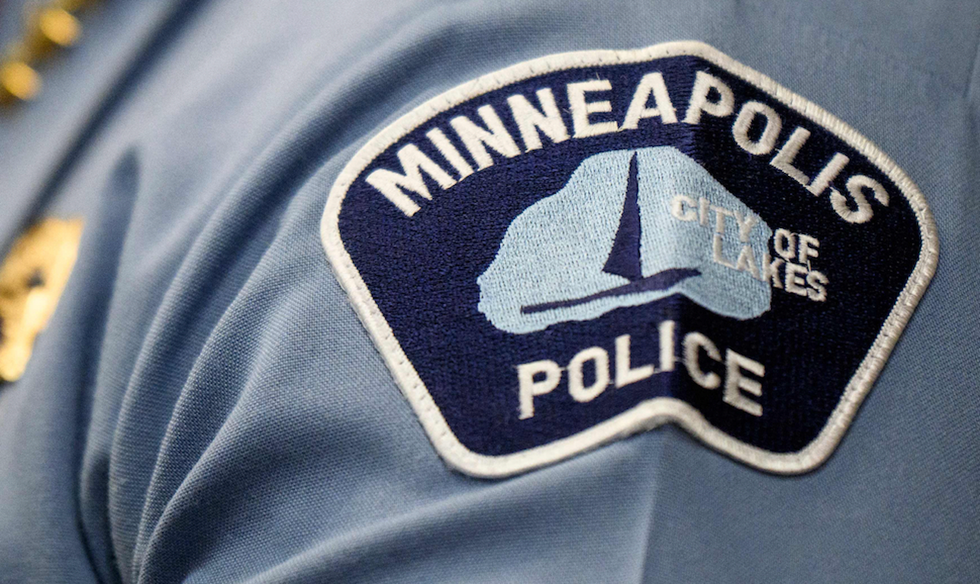'Be comfortable without the lights': this chef wants you to hunt, cook, and be ready for an EMP
Chef Jean-Paul Bourgeois is ready to bring conservation, food, and southern hospitality to the next generation.The outdoorsman has traded in his chef's hat for a rifle and waders in his show "Duck Camp Dinners," which chronicles the Louisiana native's epic adventures in the south. In his recent interview with Align, the gregarious southern Louisiana native was eager to tout the Cajun cuisine he grew up on, sharing recipes as practical as they are delicious. "Boudin is so easy to make!" he said of the classic dish made with meat, rice, onions, and peppers. Bourgeois has been known to forgo the traditional pork filling in favor of the geese he hunts. In both cases, boudin calls for parts of the animal that are typically discarded. Whether it's gizzards and innards, breasts and bones, Bourgeois makes sure nothing goes to waste. "I try to make sure I can make as many meals is possible," he affirmed.'Some people just have an aversion to seeing dead animals.'The authentic, practical know-how that Bourgeois brings to "Duck Camp Dinners" helps explain why the show is so popular. It also lets Bourgeois tackle larger issues. For example, last season's final episode closed with lessons about natural and un-natural conservation in Louisiana. Bourgeois shared stories about the wetlands along the Gulf coast, explaining how some families literally pick up and move their home depending on the season."When it's hurricane season, some families will just drop a concrete slab on the ground — if they have the land — then put their trailer on top of it," he explained. "Or, they may just move out of the area entirely and come back when the seasons change.""If they don't have that option, some of the homes you see in the video will be built 15-20 feet in the air to avoid floods."Shockingly, this effort to relocate on a seasonal basis has become routine for a number of families that face consistent natural disasters. Your browser does not support the video tag. Confronting activistsBourgeois also stressed the importance of practicing what he preaches in terms of utilizing an entire animal. He expressed that he felt a strong sense of responsibility to not only represent hunters and chefs honorably but also a sense of responsibility to provide for his family and not be wasteful."We know exactly how that fish was caught or that bird was shot or how that venison was harvested," he explained. "[But] we don't know that about what we get out of the grocery store.""It also saves money, it saves me money at least!" he joked.That attitude has helped the chef come to terms with some of the activism he has faced over the years."Some people just have an aversion to seeing dead animals on social media, and I get that," he noted. However, it isn't Bourgeois' hunting that has drawn complaints from social media users."Animal rights activists [came] after me when I was working as a commercial chef; pork, cattle, and chickens ... and came at me more when I played more of a role in that space," he recalled."I think it's a lot easier for folks that are on the side of animal activists to support somebody that's hunting and fishing his own meat and game out of the wild, as opposed to somebody who is using the large commercial farming operations of America to feed a restaurant."To that extent, Bourgeois said he understood why a vegan or an animal activist might speak out if they thought animals were being mistreated. View this post on Instagram A post shared by Veritas Vineyard & Winery (@veritaswinery)Passing on the knowledgeBourgeois knows his idea of fun can be a hard sell to screen-addicted digital natives."I don't know how to relate to this generation!" Bourgeois laughed. "Maybe I'm kind of glad I don't!"All joking aside, the soon-to-be father of two said a lot of the responsibility falls on the parent to make sure their child has an understanding of the outdoors and is capable of surviving if the lights go out."A lot of this is on the parents to get out there and be an example. It doesn't mean you have to be a duck hunter, [and] it doesn't mean you have to be a fisherman."'There's only so long that people can go with running on generators.'The father pointed to simply letting kids be kids — letting them dig in the backyard and find earthworms or providing them with books that nurture a desire to want to be in the outdoors."That should start at a young age," he continued. "It's hard to pull a 15-year-old away from a PlayStation and put them into the wild for duck hunting."Bourgeois explained that most of the youngsters featured in his videos didn't become nature lovers overnight."Those kids were born and raised in the outdoors in Louisiana," Bourgeois explained. "Whether it was an aunt, an uncle, or someone else in the family, someone took them out and gave them that experience."In conclusion, the longer a person waits, the more they can expect to become overly attached to their "indoor" luxurie


Chef Jean-Paul Bourgeois is ready to bring conservation, food, and southern hospitality to the next generation.
The outdoorsman has traded in his chef's hat for a rifle and waders in his show "Duck Camp Dinners," which chronicles the Louisiana native's epic adventures in the south.
In his recent interview with Align, the gregarious southern Louisiana native was eager to tout the Cajun cuisine he grew up on, sharing recipes as practical as they are delicious.
"Boudin is so easy to make!" he said of the classic dish made with meat, rice, onions, and peppers.
Bourgeois has been known to forgo the traditional pork filling in favor of the geese he hunts. In both cases, boudin calls for parts of the animal that are typically discarded.
Whether it's gizzards and innards, breasts and bones, Bourgeois makes sure nothing goes to waste.
"I try to make sure I can make as many meals is possible," he affirmed.
'Some people just have an aversion to seeing dead animals.'
The authentic, practical know-how that Bourgeois brings to "Duck Camp Dinners" helps explain why the show is so popular. It also lets Bourgeois tackle larger issues.
For example, last season's final episode closed with lessons about natural and un-natural conservation in Louisiana.
Bourgeois shared stories about the wetlands along the Gulf coast, explaining how some families literally pick up and move their home depending on the season.
"When it's hurricane season, some families will just drop a concrete slab on the ground — if they have the land — then put their trailer on top of it," he explained. "Or, they may just move out of the area entirely and come back when the seasons change."
"If they don't have that option, some of the homes you see in the video will be built 15-20 feet in the air to avoid floods."
Shockingly, this effort to relocate on a seasonal basis has become routine for a number of families that face consistent natural disasters.
Confronting activists
Bourgeois also stressed the importance of practicing what he preaches in terms of utilizing an entire animal. He expressed that he felt a strong sense of responsibility to not only represent hunters and chefs honorably but also a sense of responsibility to provide for his family and not be wasteful.
"We know exactly how that fish was caught or that bird was shot or how that venison was harvested," he explained. "[But] we don't know that about what we get out of the grocery store."
"It also saves money, it saves me money at least!" he joked.
That attitude has helped the chef come to terms with some of the activism he has faced over the years.
"Some people just have an aversion to seeing dead animals on social media, and I get that," he noted. However, it isn't Bourgeois' hunting that has drawn complaints from social media users.
"Animal rights activists [came] after me when I was working as a commercial chef; pork, cattle, and chickens ... and came at me more when I played more of a role in that space," he recalled.
"I think it's a lot easier for folks that are on the side of animal activists to support somebody that's hunting and fishing his own meat and game out of the wild, as opposed to somebody who is using the large commercial farming operations of America to feed a restaurant."
To that extent, Bourgeois said he understood why a vegan or an animal activist might speak out if they thought animals were being mistreated.
Passing on the knowledge
Bourgeois knows his idea of fun can be a hard sell to screen-addicted digital natives.
"I don't know how to relate to this generation!" Bourgeois laughed. "Maybe I'm kind of glad I don't!"
All joking aside, the soon-to-be father of two said a lot of the responsibility falls on the parent to make sure their child has an understanding of the outdoors and is capable of surviving if the lights go out.
"A lot of this is on the parents to get out there and be an example. It doesn't mean you have to be a duck hunter, [and] it doesn't mean you have to be a fisherman."
'There's only so long that people can go with running on generators.'
The father pointed to simply letting kids be kids — letting them dig in the backyard and find earthworms or providing them with books that nurture a desire to want to be in the outdoors.
"That should start at a young age," he continued. "It's hard to pull a 15-year-old away from a PlayStation and put them into the wild for duck hunting."
Bourgeois explained that most of the youngsters featured in his videos didn't become nature lovers overnight.
"Those kids were born and raised in the outdoors in Louisiana," Bourgeois explained. "Whether it was an aunt, an uncle, or someone else in the family, someone took them out and gave them that experience."
In conclusion, the longer a person waits, the more they can expect to become overly attached to their "indoor" luxuries.
When the EMP drops
Could a love of outdoors also come in handy in the event of some society-disrupting event like an EMP attack?
"That's a fun thought experiment!" Bourgeois laughed.
He quickly proceeded to offer a list of necessities for when SHTF, including fuel to get out of town, firearms, ammunition, as well as canned vegetables and meat.
When asked about generators, Bourgeois offered a unique perspective.
"When you look at all the history that Louisiana has with hurricanes, there's only so long that people can go with running on generators. That's about two weeks."
Being "comfortable without the lights" and without air conditioning is something that will actually go a long way, he added.
Don't count on always having a refrigerator either, Bourgeois warned. He suggested researching ways that food has been preserved in the past
As much as he sounded mentally prepared for disaster, the food expert said he was still keeping "positive vibes" toward the idea that humanity will get along and be able to avoid any apocalyptic scenarios.
"I do love my amenities, too!" he clarified.
Whether it's Florida where he currently resides, his home state of Louisiana, or elsewhere, Bourgeois asserted he hoped his content would inspire people to try new things, and carry on the traditions of the outdoors for generations.
Season three of "Duck Camp Dinners" premieres August 18, 2024. For more information on Chef Bourgeois, head to his website.
- YouTube
Like Blaze News? Bypass the censors, sign up for our newsletters, and get stories like this direct to your inbox. Sign up here!
Originally Published at Daily Wire, World Net Daily, or The Blaze
What's Your Reaction?
































































































